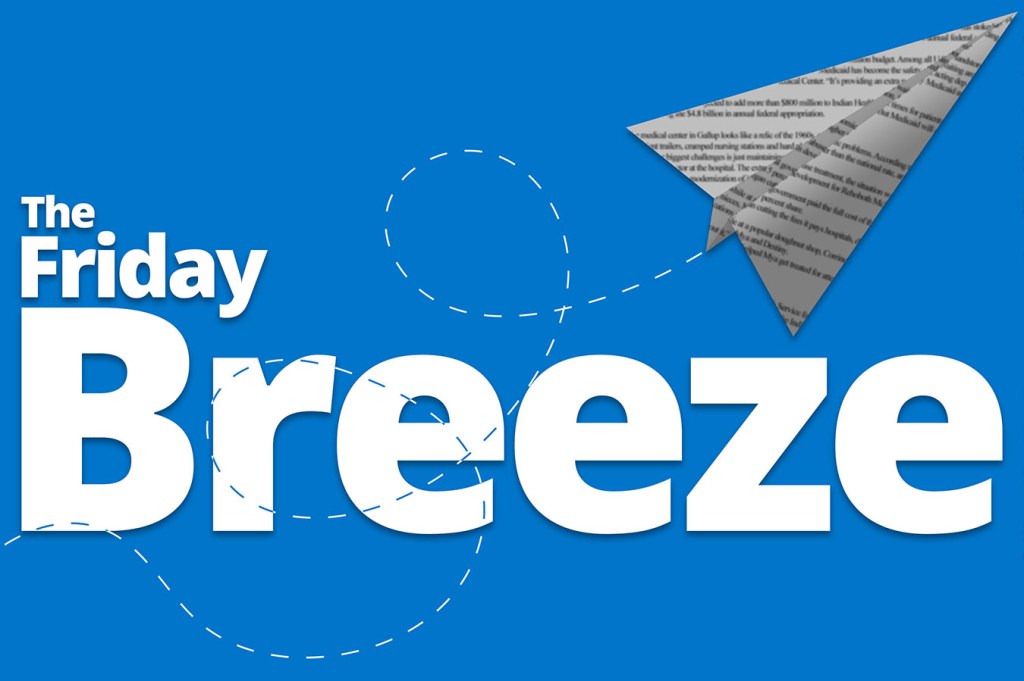Happy Friday! Before we dive in to the harder news, please join me in enjoying this story about scientists dosing a shy breed of octopus with ecstasy to see if the animal became cuddly and friendly while high. (I swear, it relates to health care: More studies are evaluating psychedelic drugs as outside-the-box treatments, especially for post-traumatic stress disorder in veterans.)
Now, here’s what else you may have missed:
Senators were busy bees this week on the Hill. In a rare bipartisan feat, the upper chamber passed a sweeping opioids package … but there’s some fine print. Lawmakers still have to iron out the (harder, more controversial) differences between the Senate and House versions of the legislation, and they probably won’t do that work until November — conveniently, after midterms. Until then, they have a talking point!
And you know that “doughnut hole” change (which forces drugmakers to pay more for medication used by Medicare beneficiaries) that pharma hates and has been pestering lawmakers about for ages? Congress might tuck a measure rolling that back into the opioid package.
The Associated Press: GOP, Dems Unite Behind Senate Bill Fighting Addictive Drugs
Stat: GOP Lawmakers Seeking to Use Opioids Bill to Deliver Drug Industry Major Victory
It’s not all roses for drugmakers, though: A Senate-passed bill would ban “gag clauses,” which currently keep pharmacists from talking to consumers about lower-cost options.
Stat: Senate Passes Bill That Would Ban ‘Gag Clauses’ Limiting Disclosures on Drug Prices
In a sharp divergence from the budget spectacles of years past, the Senate quietly OK’d a measure to avert a government shutdown. The measure included a big, 5 percent boost to the National Institutes of Health, which was the fourth-straight significant increase for the agency.
The Associated Press: Senate Backs Bill to Avert Shutdown, Boost Military Spending
There’s a real fear out there that we’re all one bad accident away from financial ruin. A bipartisan group of senators wants to protect patients from that worry with its proposed measure on surprise bills, otherwise known as “balance billing.” (Bonus: Check out the KHN story that Republican Sen. Bill Cassidy cited in his announcement.)
The Hill: Bipartisan Senators Unveil Proposal to Crack Down on Surprise Medical Bills
As the news continues to evolve over the sexual assault allegations against Supreme Court nominee Brett Kavanaugh, here’s a health tidbit you might have missed if you didn’t scan all the way to the bottom of today’s stories. Gov. Bill Walker of Alaska, an independent, and his lieutenant governor, Byron Mallott, both came out against Kavanaugh’s nomination — not because of the accusations, but because they’re worried he’s going to jeopardize Medicaid coverage. It will be interesting to see if that’s enough to sway Alaska Sen. Lisa Murkowski, a Republican, who is being watched closely as a possible swing vote.
The New York Times: Christine Blasey Ford Opens Negotiations on Testimony Next Week
Attorney general races are rarely the belles of the ball when it comes to elections. But as more of them use their position to try to check President Donald Trump’s policies (especially ones chipping away at the health law), the campaigns are drawing more eyes.
Politico: Obamacare Lawsuit Boosts Democrats in State AG Races
Preexisting conditions have been a bomb Republicans have been trying to defuse for weeks on the campaign trail, but even GOP strategists call it a losing battle. “What you have to do at this point is duck and cover,” said one in Politico’s coverage.
Politico: Republicans ‘Duck and Cover’ on Pre-Existing Conditions
A new, more detailed report has emerged of the slow-moving medical catastrophe that was Hurricane Maria. It’s also a grim insight into why counting a death toll becomes so complicated.
The Associated Press: Maria’s Death Toll Climbed Long After Rain Stopped
Meanwhile, an investigation has been launched into why two mentally ill women who were seeking care were taken from a safe hospital and driven into Florence’s floodwaters, where they both drowned.
The New York Times: They Were Seeking Mental Health Care. Instead They Drowned in a Sheriff’s Van.
In the miscellaneous, must-read file for the week:
- The U.S. is the most dangerous place to have a baby in the developed world, yet states are doing little to address the issue. And the ones that are, often blame the moms.
USA Today: Maternal Deaths: What States Aren’t Doing to Save New Mothers’ Lives
- We’re on the precipice of some amazing breakthroughs for cancer treatments, yet Native Americans and black patients are missing out because they’re underrepresented in clinical trials.
ProPublica/Stat: Black Patients Are Being Left Out of Clinical Trials for New Cancer Therapies
- Personal health aides can be a lifeline for elderly patients. Inviting a stranger into your home, though, is inherently risky and there’s few regulations that exist to weed out predators.
Boston Globe: Stranger in the House
- And a fascinating Alzheimer’s treatment called “reminiscence therapy” has seen success overseas and is gaining traction here. Check out this one facility that recreated a 1950s town square, complete with Buddy Holly on the jukebox and an old-fashioned diner.
The Wall Street Journal: To Help Alzheimer’s Patients, A Care Center Re-Creates The 1950s
As a newsroom that has a dedicated chocolate drawer and sweet treats brought in by colleagues a few times a week, this article on employers cutting down on sugary snacks sparked a bit of a debate here. To ban or not to ban, that is the question of the week.
Have a great weekend!







